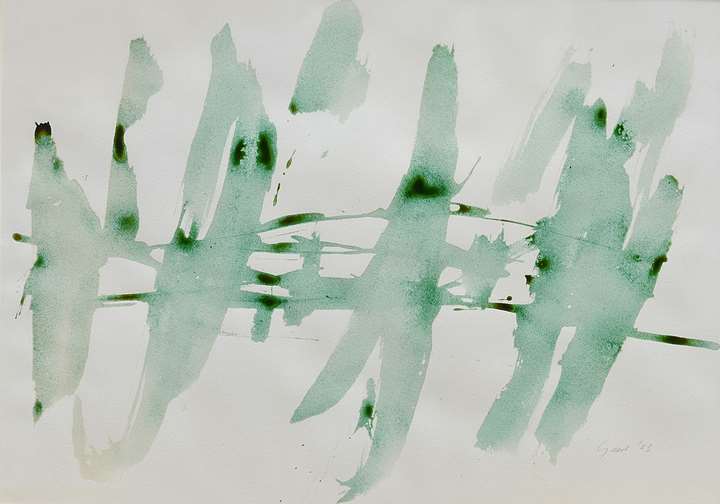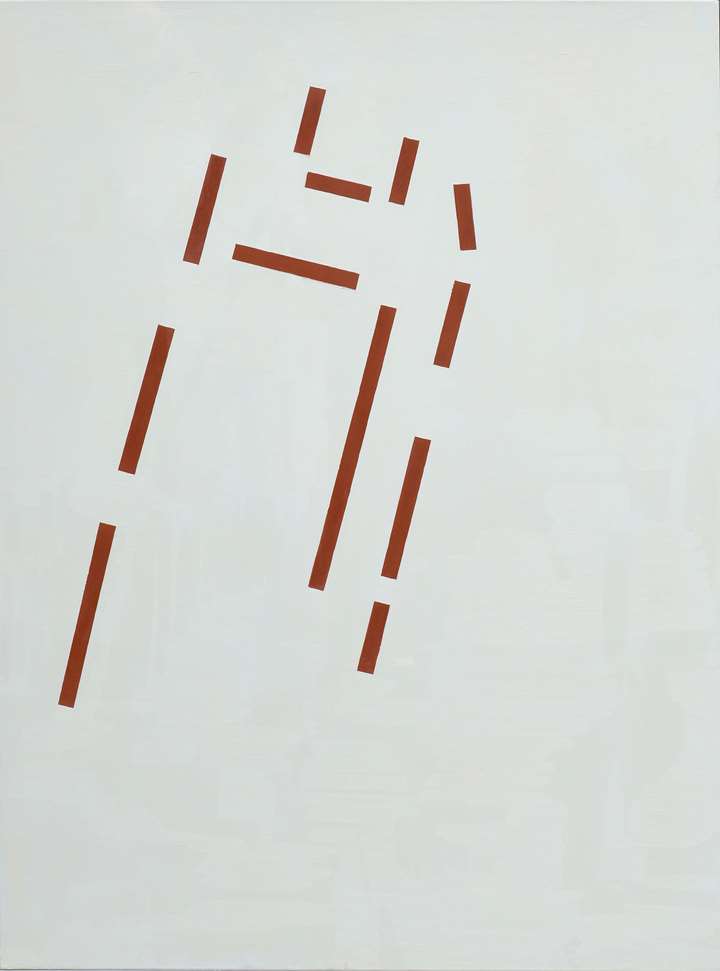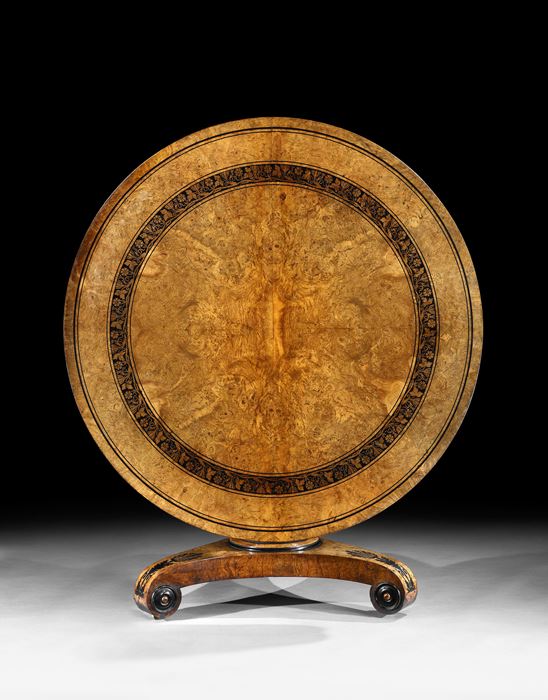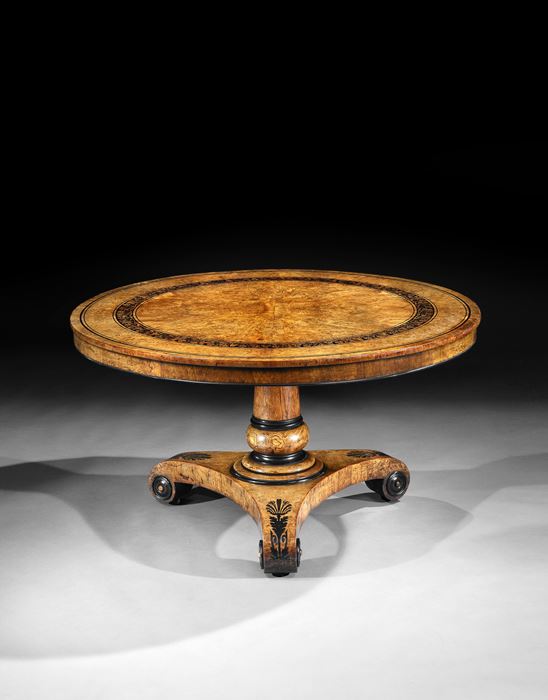Description & Technical information
George Bullock (c.1777-1818) is one of the most celebrated English Cabinetmakers of the regency period, his designs embracing the quality of often-used indigenous timbers and recognisable by the abundance of British Flora in their ornament.
This outstanding table is supported by a turned column and base, closely resembling another example attributed to Bullock, which sold at Christies ‘The English Collector’ Sale in 2015. The corresponding application of a black wash to their undersides said to be particular characteristic of Bullock’s workshop.
Moreover, the present work bares further similarity to an example supplied to Matthew Robinson Boulton at Tew Park in 1817, which sold at Christie’s ‘Important English Furniture’ sale in 2003.
The ‘honeysuckle’ pattern for the inlaid border was likely used for the first time on a desk stand that was purchased by Queen Charlotte in 1812 and appears in the ‘Wilkinson Tracings’. A scrapbook which contains a wide range of tracings and engraving, inscribed ‘Tracing by Thomas Wilkinson for designs of the late Mr George Bullock 1820’. These impressions are considered amongst the most important sources regarding Bullock’s work and have been in the ownership of Birmingham City Museum and Art Gallery since 1974.
REF1052
The circular top inlaid with a continuous band of honeysuckle, flower heads and ivy, above a turned column and a scrolled triform base with applied roundels, terminating in anti-friction castors.
Date: circa 1815
Period: Early 19th century
Origin: English
Medium: oak, yew and ebony
Dimensions: 73 x 131 cm (28³/₄ x 51⁵/₈ inches)
Provenance: The Estate of Jasper Gibbons Grinling, late of the The Old Vicarage, Helions Bumstead, Essex.
(An almost identical example supplied by Bullock's workshop to Battle Abbey)
Literature: J Murray and H Blairman & Sons, ‘George Bullock Cabinet Maker’ 1988, pp.95-96
Categories: Furniture

Discover the gallery
Godson & Coles
English Antique Furniture and Modern British Art
More Works From This Gallery
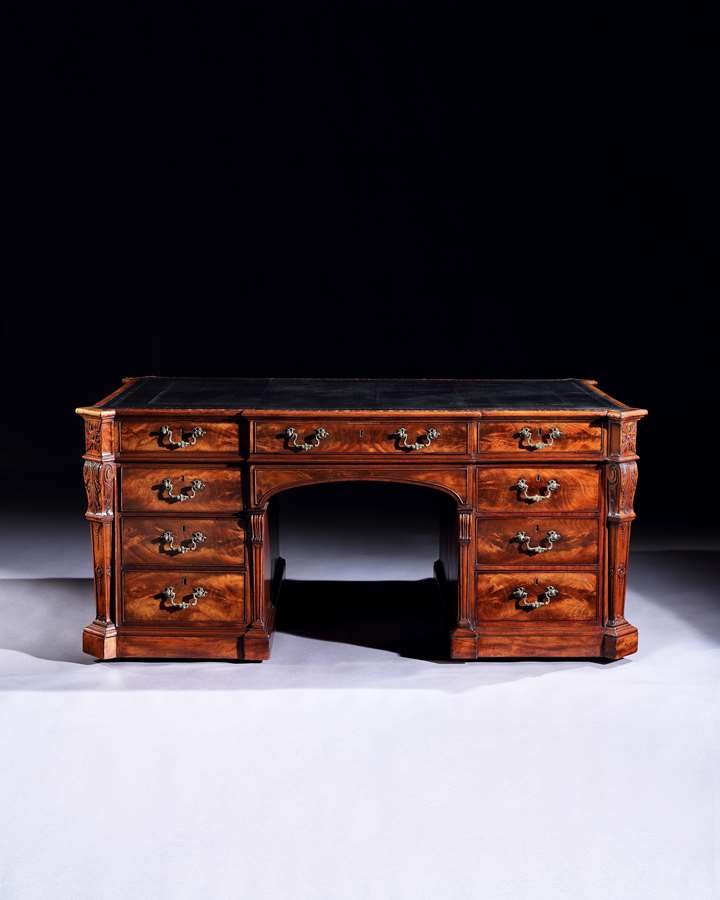
Godson & Coles
An Important Chippendale Period carved Mahogany Partners Desk
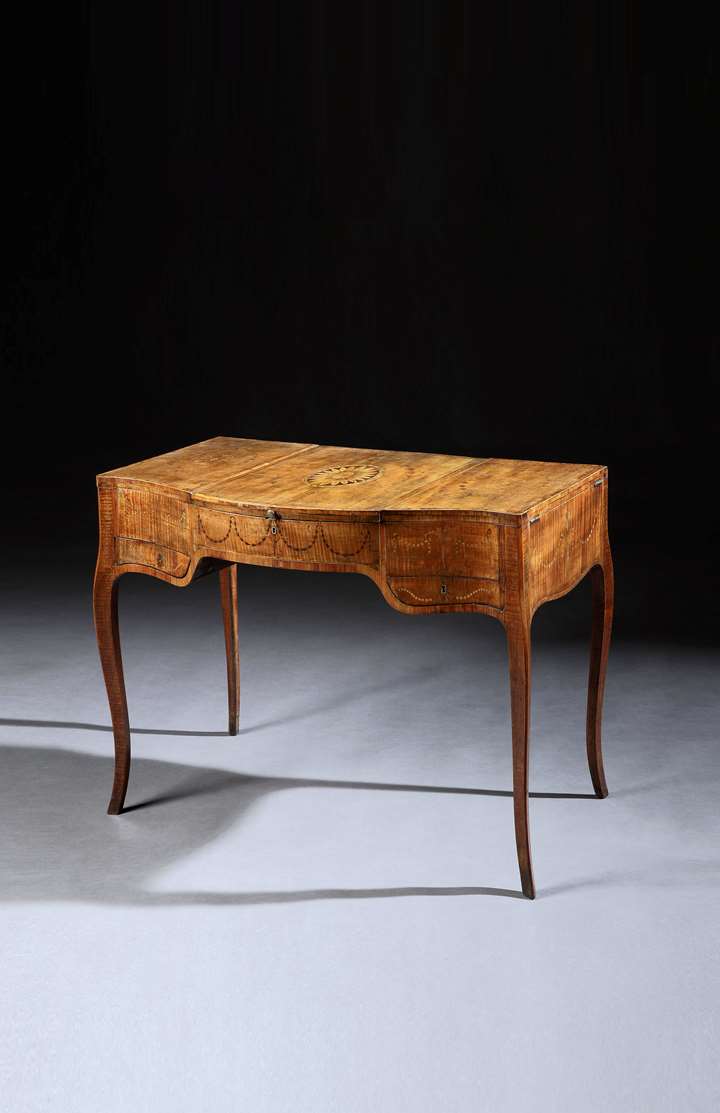
Godson & Coles
A George III Period Fiddleback Sycamore and Marquetry Dressing Table In the Manner of Mayhew and Ince
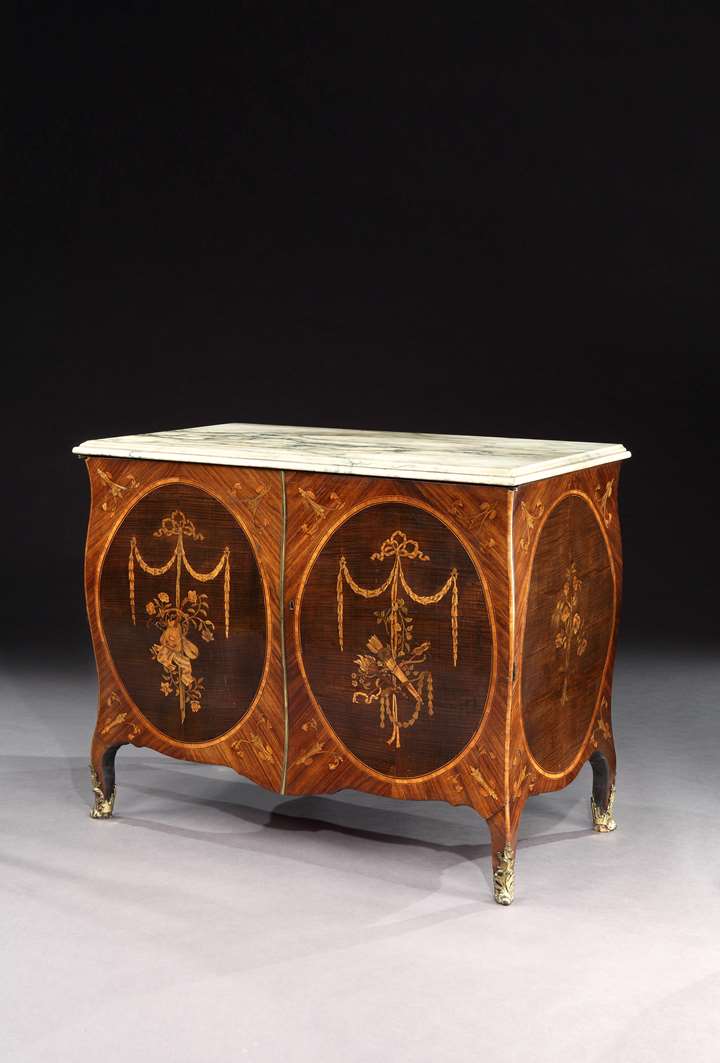
Godson & Coles
An Exceptional Pair of George III Marquetry Bombe Commodes Attributed to Mayhew and Ince
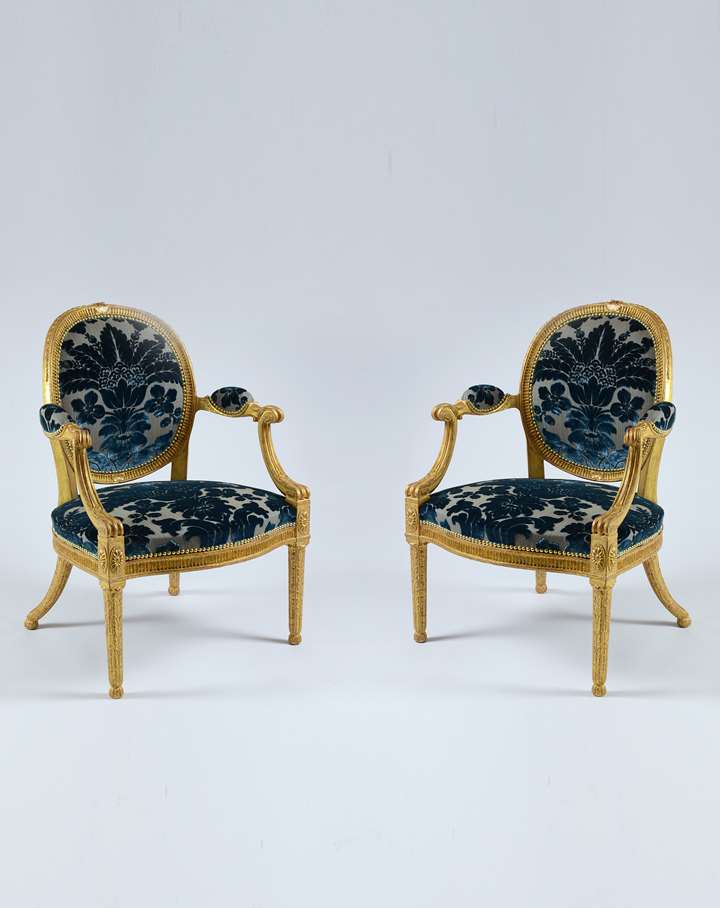
Godson & Coles
A Fine Pair of Giltwood Armchairs attributed to John Linnell
John Linnell
